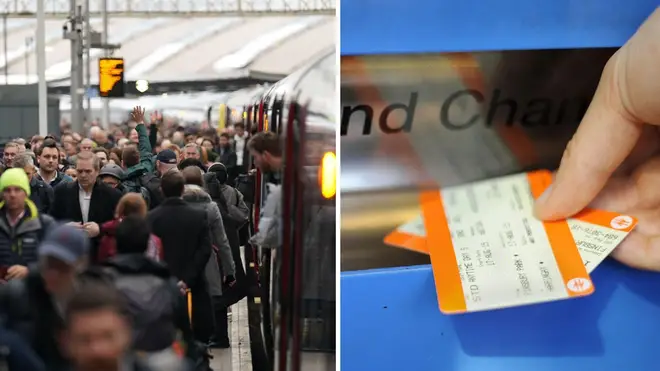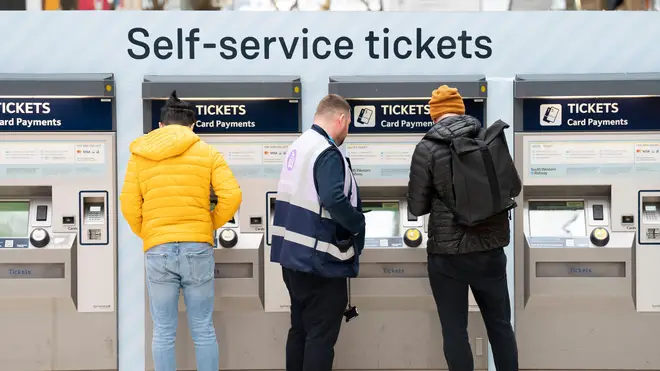
Paul Brand 10am - 12pm
3 March 2024, 11:27 | Updated: 3 March 2024, 11:28

Train fares have increased by almost five per cent, despite train cancellations being among the highest levels for 10 years.
The 4.9 per cent rise across England and Wales could add £190 to an annual season ticket from Woking to London, taking the cost from £3,880 to £4,070.
It could also see flexi season tickets for travel between Liverpool and Manchester on two days per week over a year rising by £92.60 from £1,890 to £1,982.60.
Public transport campaigners claimed passengers were being "punished" with the hikes.
It comes despite the equivalent of 3.9 per cent of services in England and Wales being cancelled in the year to February 3.
The disruption was caused by several factors, including strikes, infrastructure faults and severe weather.
Read more: Hunt's AI revolution: Budget to add £800m of new tech to slash NHS backlog and free up police time
Read more: Post Office boss 'demanded £1m pay packet' as bullying probe continues at scandal-hit company

Chris Page, who chairs pressure group Railfuture, said: "Why are rail passengers being punished year after year with inflation-busting fare rises?
"No matter that there's a cost-of-living crisis, no matter that we're facing a climate emergency, the government seems more determined than ever to price us off the railway and on to the roads."
Labour's shadow transport secretary Louise Haigh said: "This fare rise will be tough for passengers to stomach given the shocking state of rail services up and down the country.
"Since coming to power in 2010 the Tories have hiked fares by almost twice as much as wages, and now passengers are being asked to pay more for less."
Campaign for Better Transport campaigns manager Michael Solomon Williams said: "At a time when we urgently need to encourage people to take the train, the public will rightly be angry to discover that it has just become even more expensive to do so.
"We know that people will decide to drive or fly if the train is too expensive, so this is bad news for our personal finances, the wider economy and the environment."
Rail minister Huw Merriman said last month that the UK Government had attempted to "split the balance between the UK taxpayer and the fare payer" in relation to fare rises, which he described as being "well below inflation".